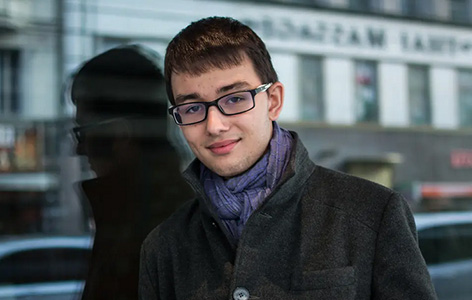| 06. 02. 2025 18:00 p.m. |
| Kino Vesmír |
| from 200 CZK |

E1 Young soloists I
The young Slovak pianist Pavol Praženica will present himself to the Ostrava audience in Camille Saint-Saëns’ Second Piano Concerto. The Third Piano Concerto by Bohuslav Martinů will be performed by the leading Czech pianist and artistic guarantor of the E cycle Ivo Kahánek.
Marie Nečasová
Všechno se jednou probolí
New commissioned work
Camille Saint-Saens
Concerto for Piano and Orchestra No. 2 in G minor, Op. 22
Bohuslav Martinů
Concerto for Piano and Orchestra No. 3, H. 316
Pavol Praženica – piano
Ivo Kahánek – piano, artistic guarantor of the cycle
Anna Bangoura – accompanying speech
Janáček philharmonic Ostrava
Jiří Habart – conductor
The young Slovak pianist Pavol Praženica will present himself to the Ostrava audience in Camille Saint-Saëns’ Second Piano Concerto, the most famous and most performed of his five piano concertos. When in 1868, during a meeting, the renowned Russian pianist, composer and conductor Anton Rubinstein, in a conversation with Saint-Saëns, mentioned that he had never conducted in Paris before, word got out and within three weeks it was possible to organise his conducting performance in the famous Pleyel Hall. The Second Piano Concerto was written for this occasion and performed for the first time under Rubinstein’s baton and with the composer at the piano.
The Third Piano Concerto by Bohuslav Martinů will be performed by the leading Czech pianist and artistic guarantor of the E cycle Ivo Kahánek. When Martinů began work on the piece in 1947, he was going through one of the most difficult periods of his life. Apart from marital difficulties, he was recovering from a serious and painful accident from the previous year, which almost became fatal for him. Another fatal blow for him was the takeover of power in Czechoslovakia in February 1948 by the Communists, which put a definitive end to Martin’s plan to return to his native country. The composer finished the concerto on 10 March 1948, the day of Jan Masaryk’s assassination, and he recorded a note about this event in his score.




